Endangered bright orange langur monkey rescued in Thailand
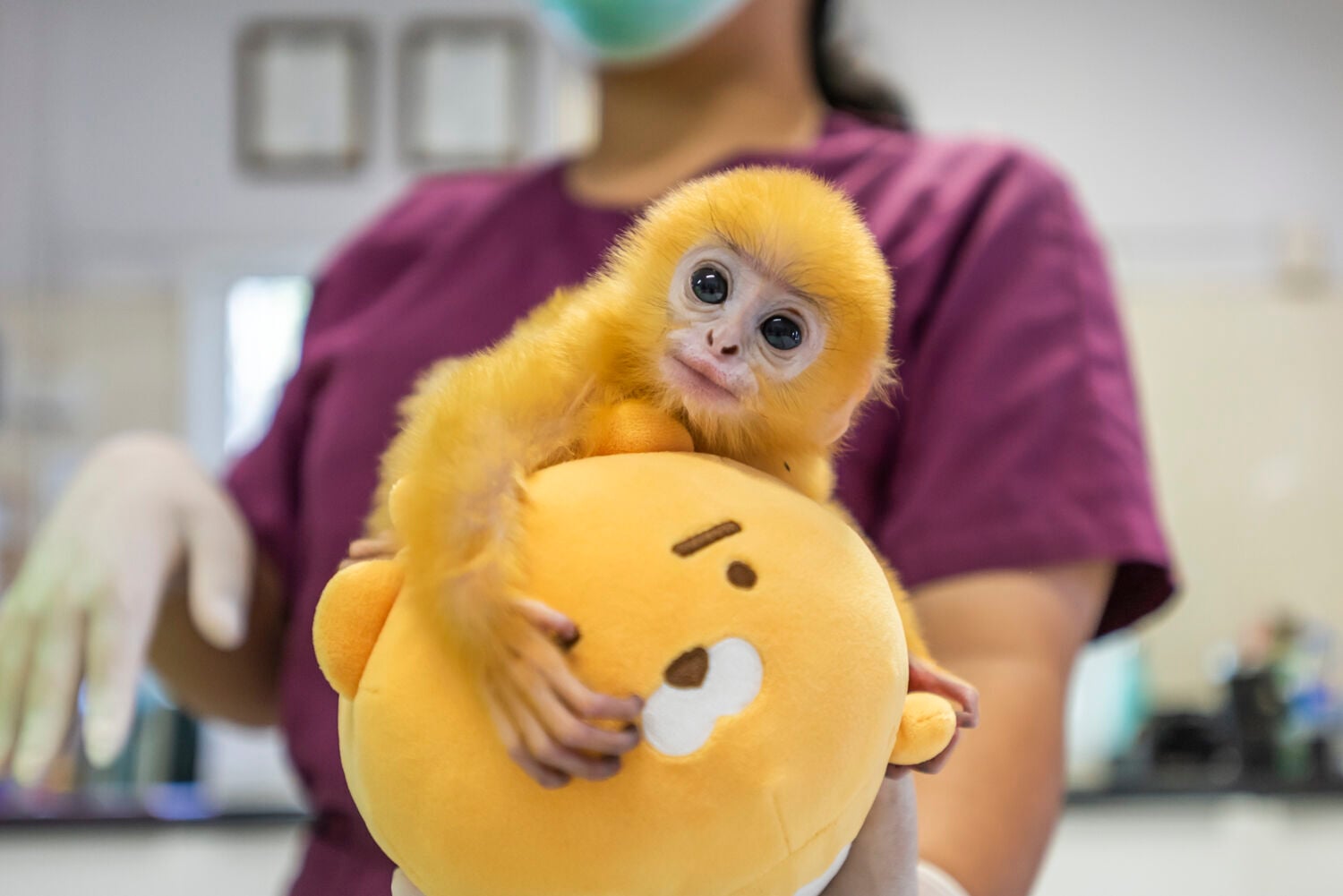
A baby bright orange langur monkey is now safe at a Thai wildlife rescue centre after being found abandoned by his family in the wild in Prachuap Khiri Khan province, southern Thailand.
Estimated to be less than one month old, the infant was found lost and all alone in a rubber plantation. He was abandoned after his family were scared away, but fortunately, a quick-thinking farmer discovered the animal and called a nearby wildlife rescue centre for help.
The vet team at Wildlife Friends Foundation Thailand (WFFT) took the baby langur into their care, where the animal was given a medical check-up at the foundation’s onsite wildlife hospital.
Named Plango, after the tropical orange fruit that bears a similar colour to his bright fur, he was found to be in generally good health. But at such a young age he still requires specialist medical care. This includes work from WFFT’s vet nurse Git, who woke up every two hours throughout the night to feed Plango when he first arrived.
Baby Plango is expected to make a full recovery. Sadly, his very young age means that he has learnt no essential skills from his parents, and therefore would not survive if returned to the wild where he would be left to fend for himself. However, Plango will have a safe forever home at WFFT, where he will soon be integrated into one of the sanctuary’s existing troops of rescued langurs.
Pictures of Plango highlight his bright orange fur, which will gradually darken with age. Wildlife experts have various reasons as to why an infant dusky langur’s fur is so bright. Some suggest that the colouring helps mothers easily locate their young, while others argue that it’s a form of camouflage. Another theory proposes that it helps to identify the infant within the group which encourages alloparenting – a form of parental care that sees different members of the group look after the young.
In the wild, dusky langurs are listed as “endangered,” and are found in parts of Thailand, Malaysia, and Myanmar. In captivity, baby langurs are one of the many victims of the illegal wildlife trade in Thailand, as their ‘cute’ appearance results in them being kept as pets. Langurs are completely unsuitable as pets, as these intelligent and social animals require a diverse diet, a natural habitat, and social interaction to thrive.
WFFT is one of South East Asia’s largest animal sanctuaries and cares for over 700 animals. The sanctuary rescues and rehabilitates captive wild animals, and offers a forever home to those who cannot safely be returned to the wild. The sanctuary is currently home to over 50 species of animals, including 23 elephants, nine tigers, and over 300 primates. The charity also focuses on raising awareness of wildlife conservation and animal exploitation by educating tourists and local communities on the urgent issues facing animals today.
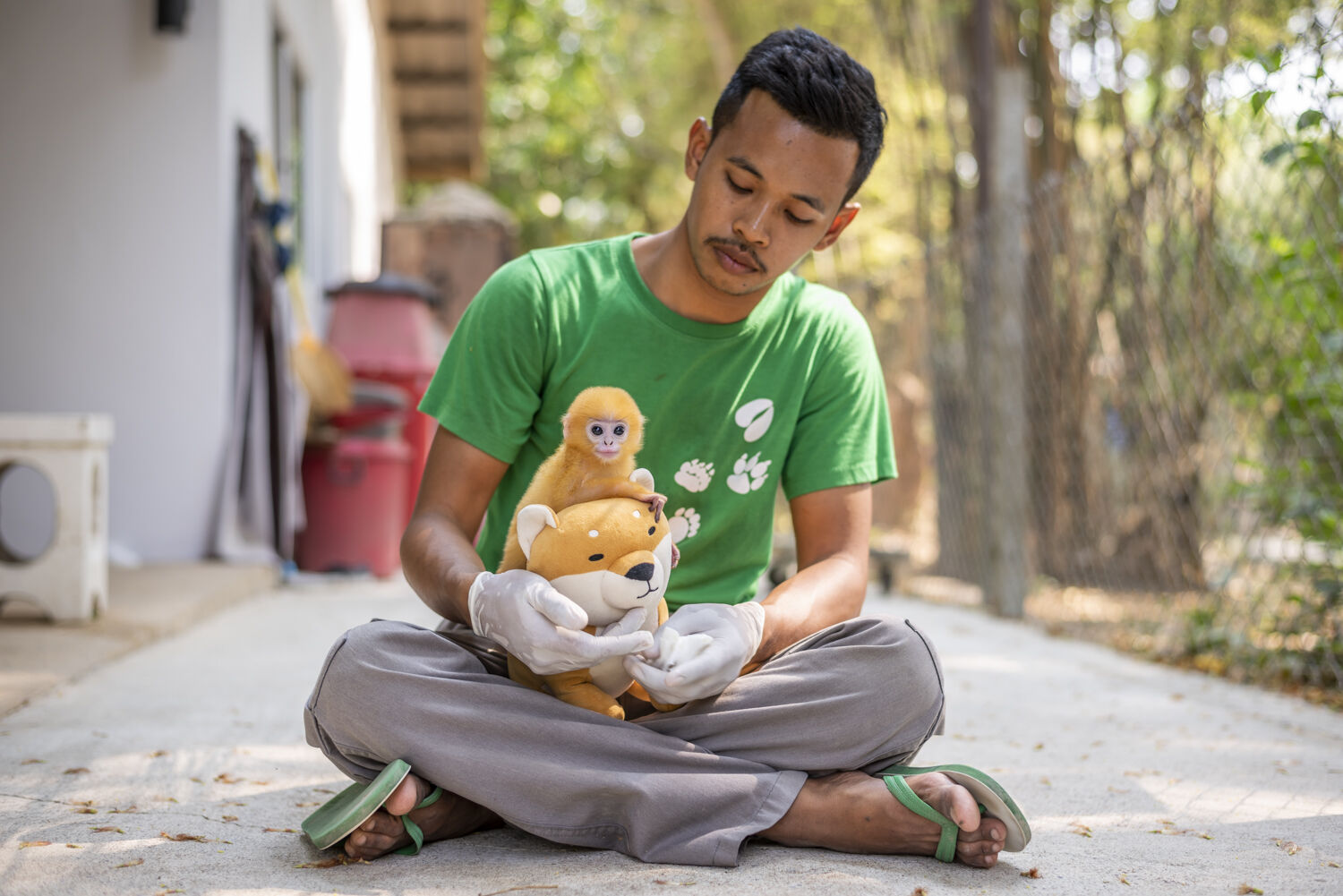
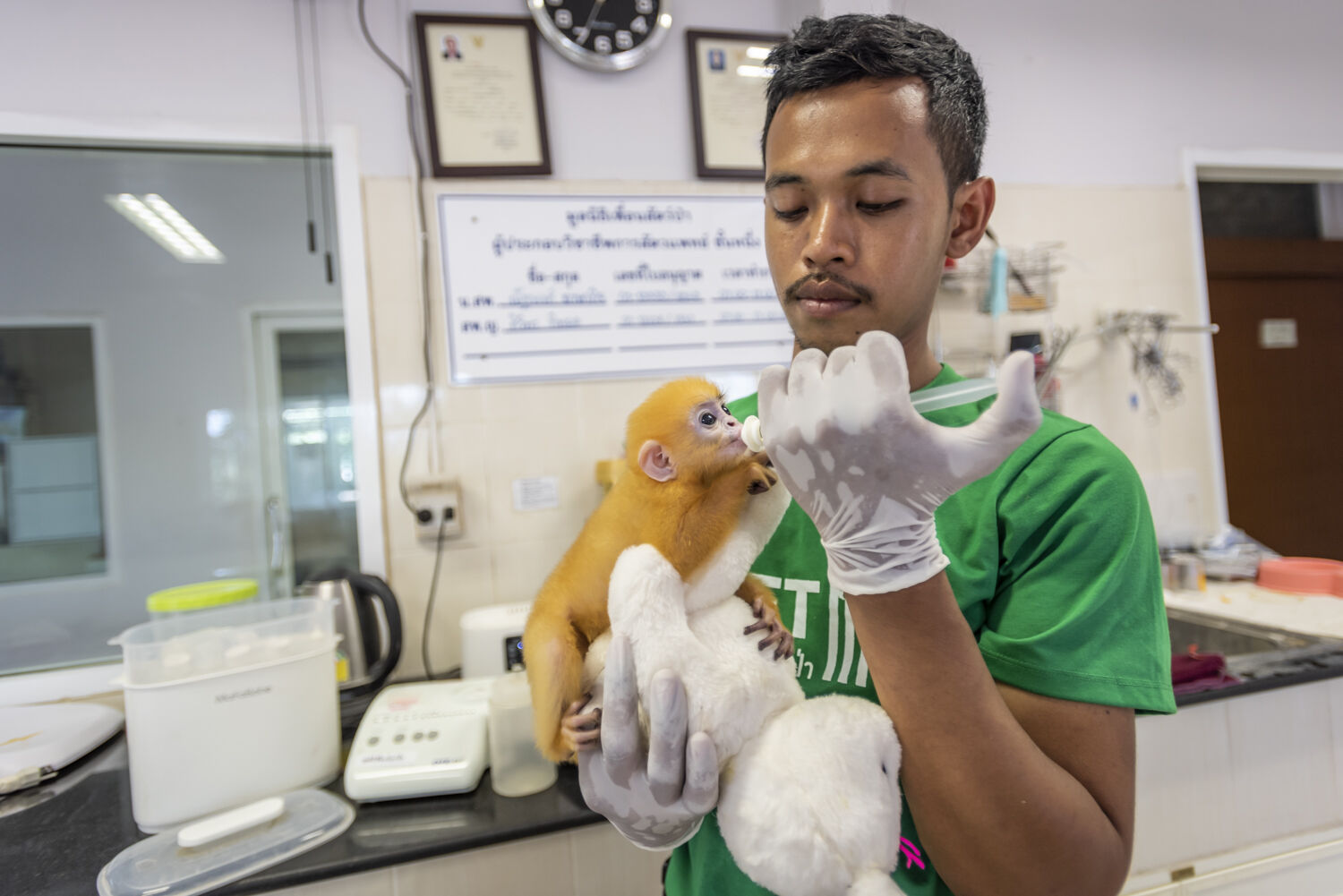
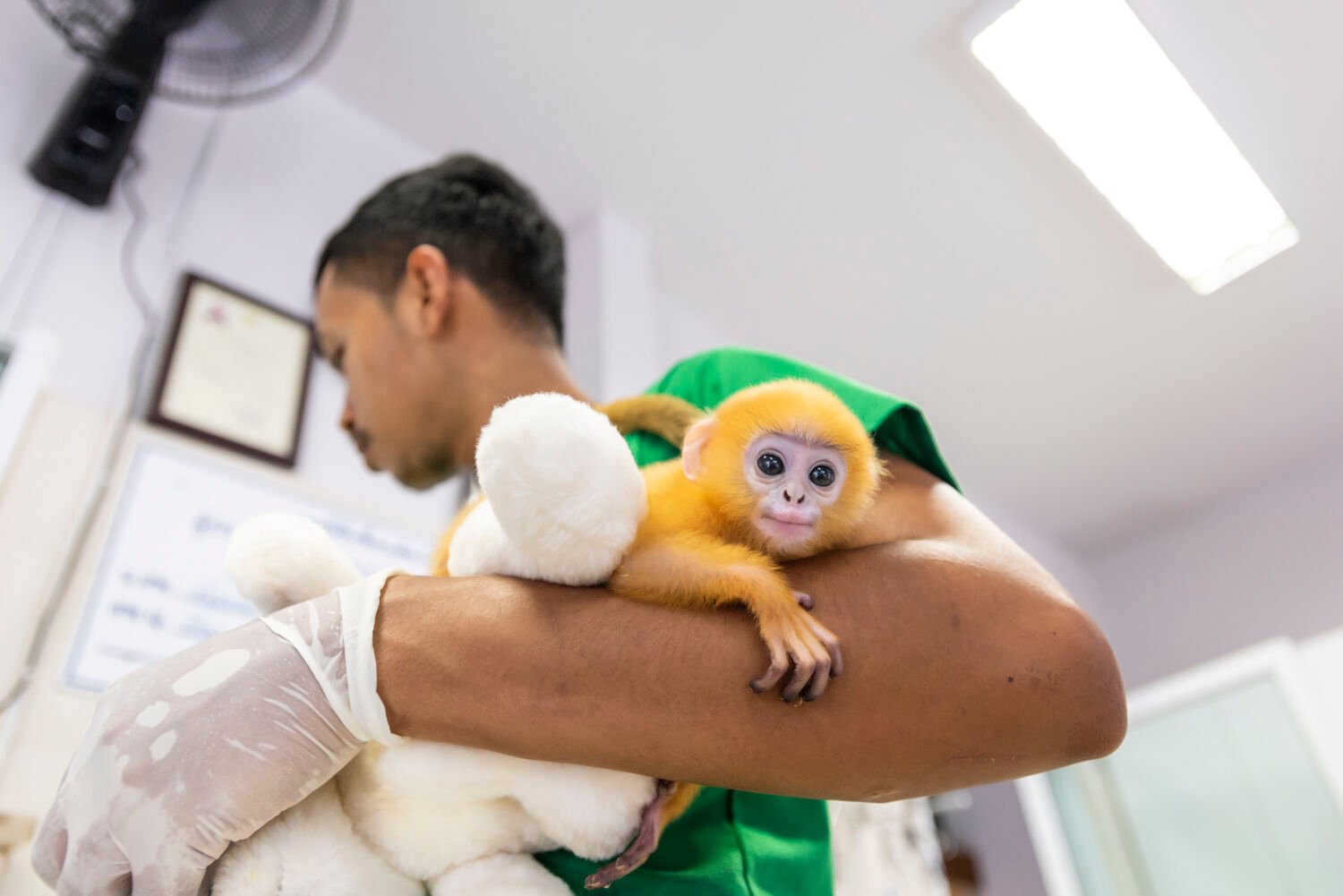
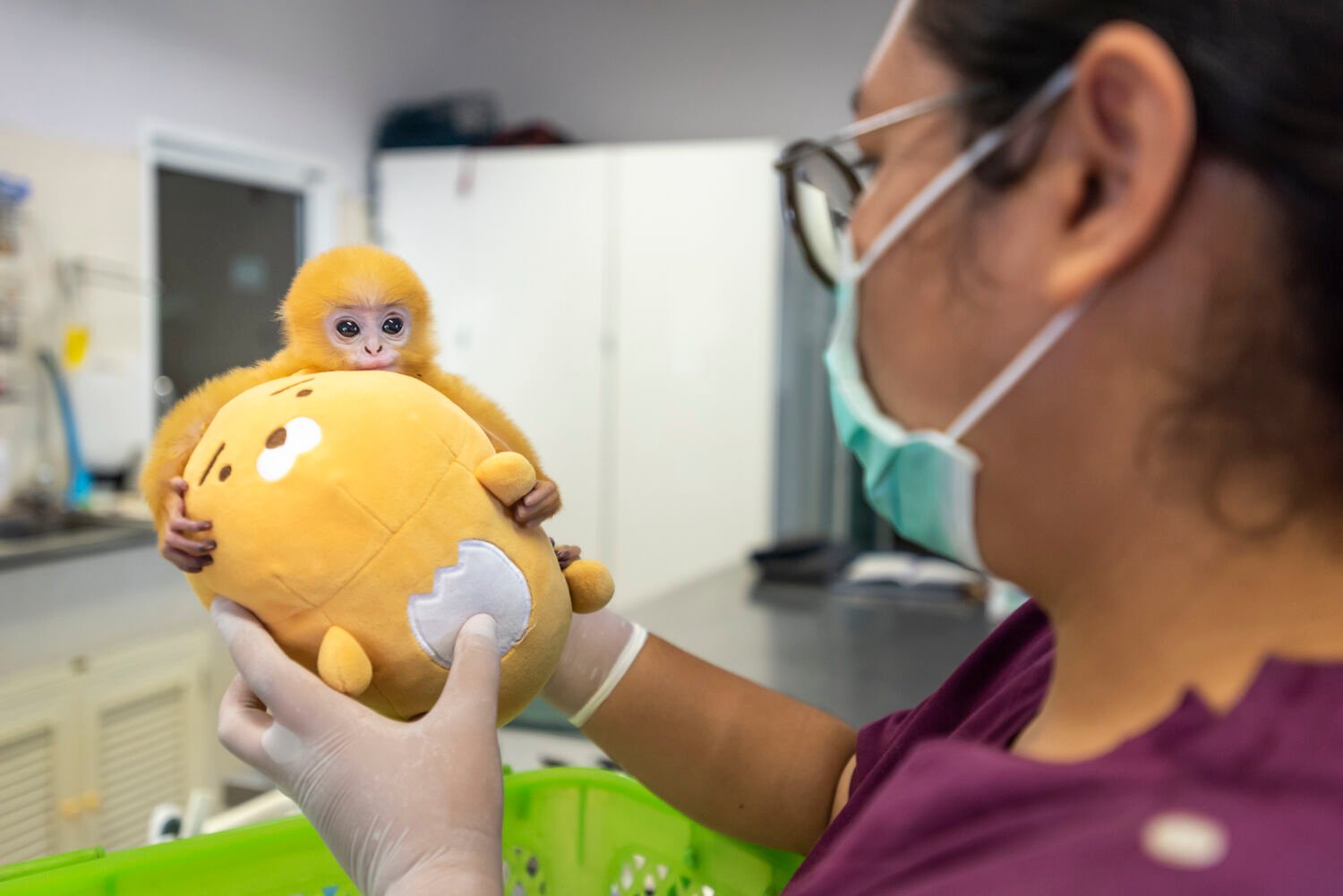
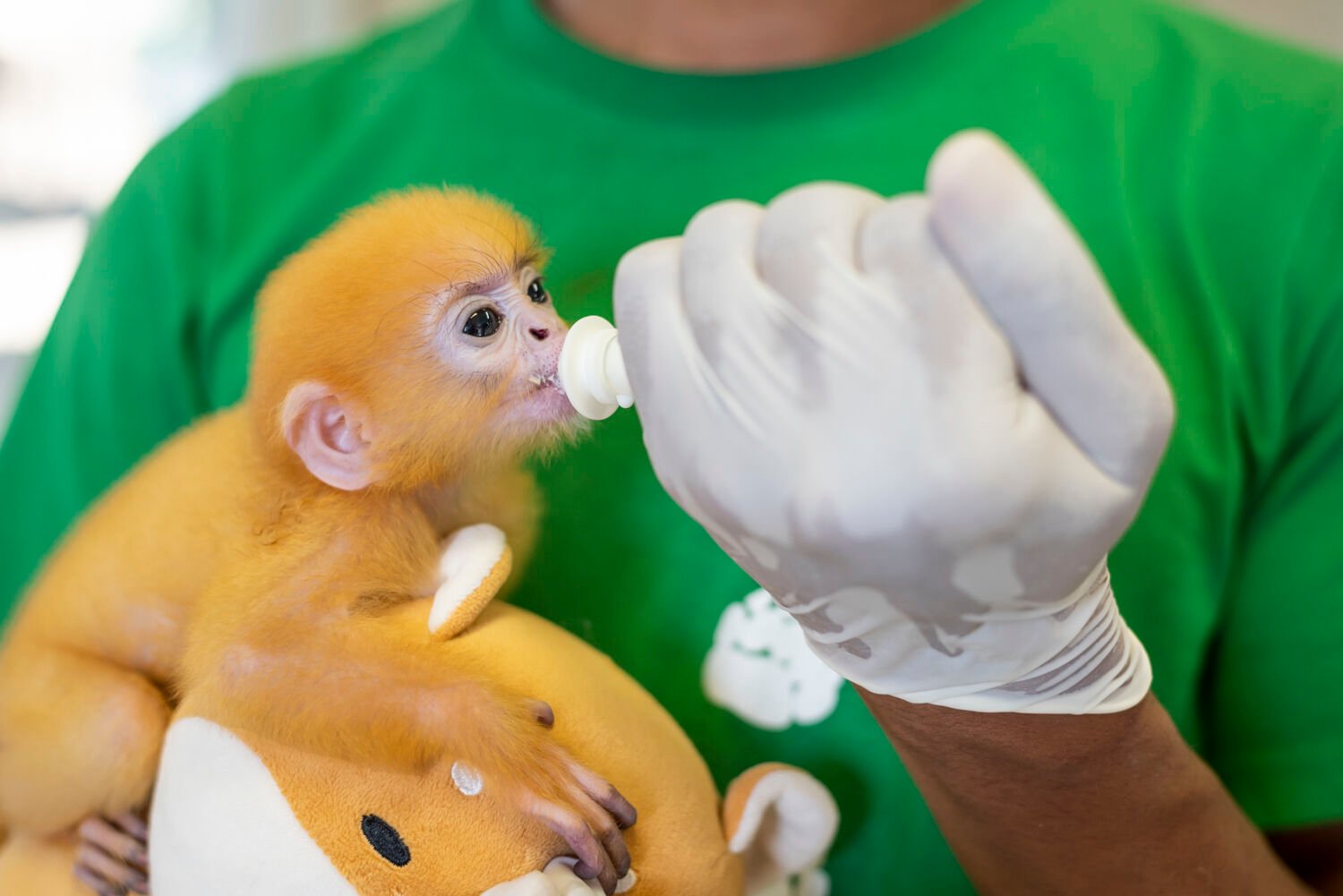
Latest Thailand News
Follow The Thaiger on Google News:


























